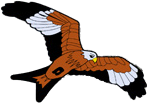Years 3 & 4
Reading - word reading
Pupils should be taught to:
- apply their growing knowledge of root words, prefixes and suffixes (etymology and morphology) as listed in - see English appendix 1 , both to read aloud and to understand the meaning of new words they meet
- read further exception words, noting the unusual correspondences between spelling and sound, and where these occur in the word
Reading - comprehension
Pupils should be taught to:
- develop positive attitudes to reading, and an understanding of what they read, by:
- listening to and discussing a wide range of fiction, poetry, plays, non-fiction and reference books or textbooks
- reading books that are structured in different ways and reading for a range of purposes
- using dictionaries to check the meaning of words that they have read
- increasing their familiarity with a wide range of books, including fairy stories, myths and legends, and retelling some of these orally
- identifying themes and conventions in a wide range of books
- preparing poems and play scripts to read aloud and to perform, showing understanding through intonation, tone, volume and action
- discussing words and phrases that capture the reader’s interest and imagination
- recognising some different forms of poetry [for example, free verse, narrative poetry]
- understand what they read, in books they can read independently, by:
- checking that the text makes sense to them, discussing their understanding, and explaining the meaning of words in context
- asking questions to improve their understanding of a text
- drawing inferences such as inferring characters’ feelings, thoughts and motives from their actions, and justifying inferences with evidence
- predicting what might happen from details stated and implied
- identifying main ideas drawn from more than 1 paragraph and summarising these
- identifying how language, structure, and presentation contribute to meaning
- retrieve and record information from non-fiction
- participate in discussion about both books that are read to them and those they can read for themselves, taking turns and listening to what others say
